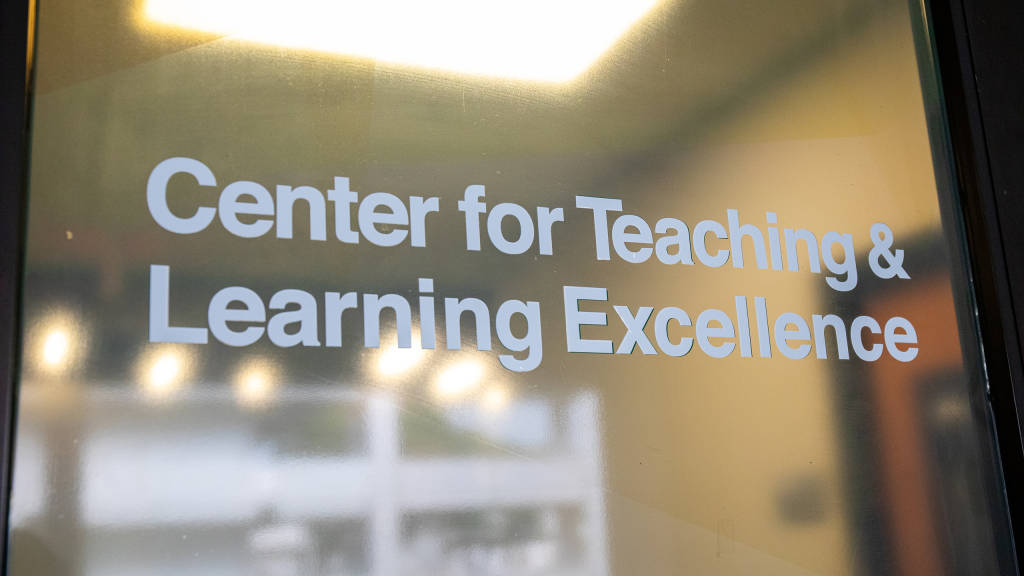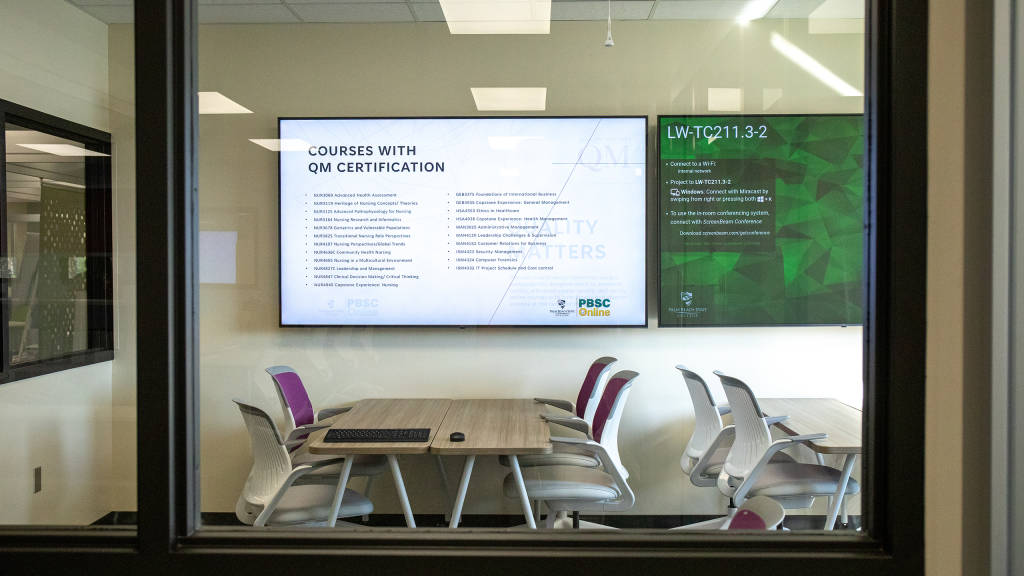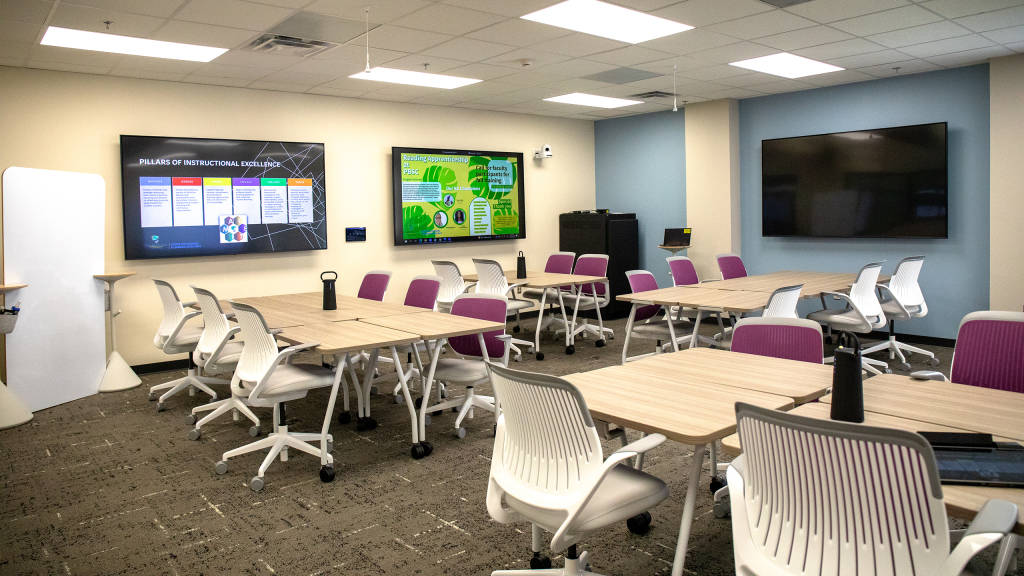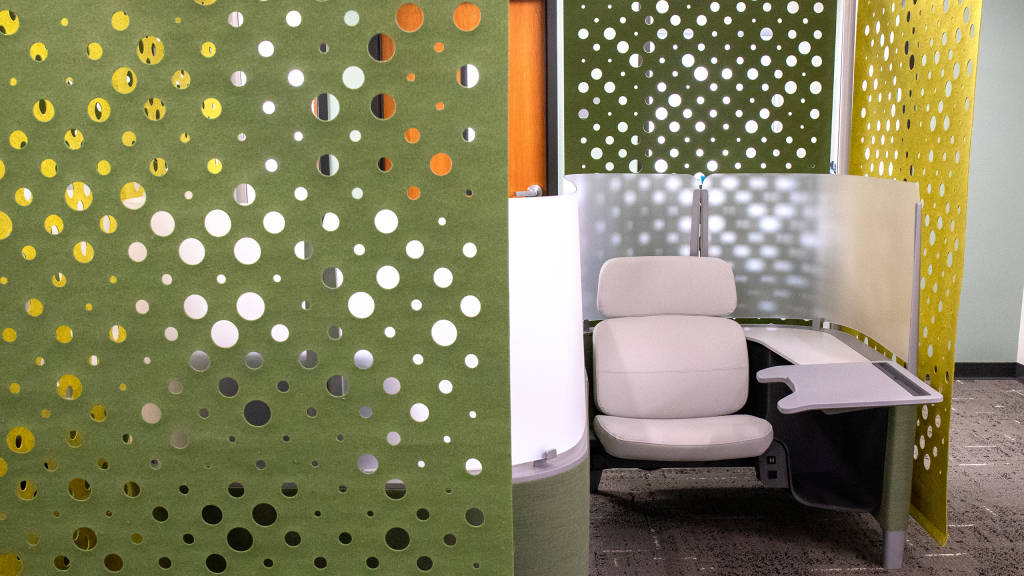Investing in Faculty Development
How Palm Beach State College supports student success by creating a dedicated space for its faculty
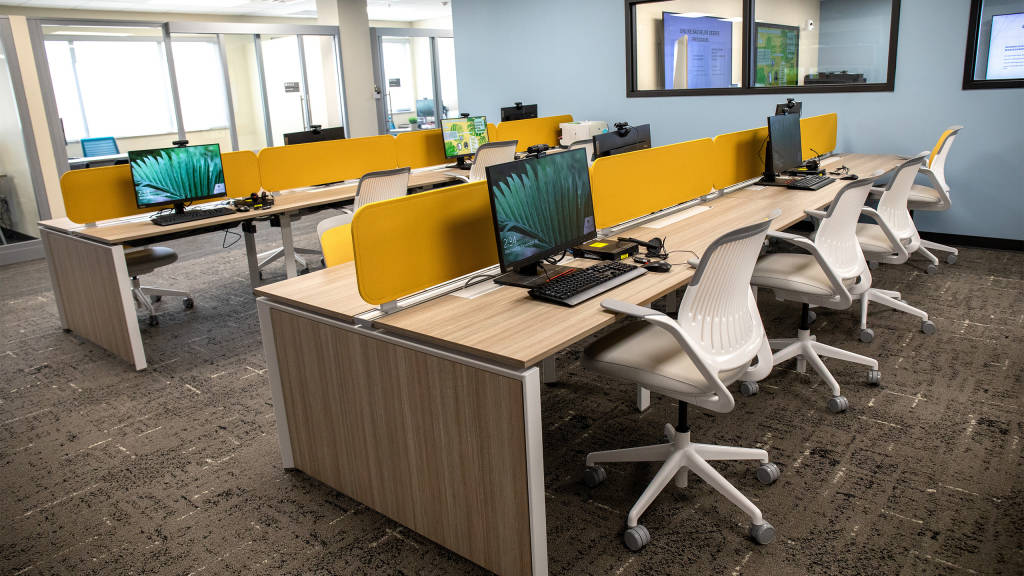
When the team at Palm Beach State College (PBSC) set out to increase student retention and graduation rates, they knew they needed to start by investing in their faculty.
On a sunny winter day in the palm-tree lined town of Lake Worth, Florida, a crowd gathered at PBSC to celebrate the opening of its new Center for Teaching and Learning Excellence (CTLE). The new 7,500-square-foot facility was created for the school’s 700 member faculty to discover, share and create innovative ways to advance their students’ success.
“When we started to think about our teaching and learning excellence model for the entire institution, we knew that meant more institutional-based faculty development. To support this, we needed a center so that we could really focus and bring everything together in a centralized manner,” says Joshua Kanies, Ed.D., director of the CTLE.
Funded with a portion of a Title V grant, the CTLE was also created to help address the needs of Hispanic students, who make up 33% of the PBSC student population. The grant’s requirements align with the college’s plan to increase retention and graduation rates of not only Hispanic students, but all undergraduates.
“Everything we create here scaffolds into every single student we encounter,’’ says Kanies. “Even though we’re addressing the needs of the grant that we received from the federal government, our goal is to take that and spread it out across all our campuses and all of our students.”
Up to this point, the faculty had a small workroom inside the campus library and a few pockets of private workspaces spread throughout the campus. Kanies’ team set out to create a hub of inspiration, scholarly activity and lifelong learning where faculty members could come together and reach their full potential.
“We looked at the skill sets of every individual faculty member and how they needed to refine those skill sets. We want to provide development opportunities that faculty can take back to their programs and departments,” explains Kanies.
The goal was to create a space that was comfortable and inviting to faculty, where they could receive mentorship and coaching, meet with peers and leadership in a more casual setting, and have space to quietly catch up on work and emails.
“It’s a safe space for them to explore, make mistakes without being in front of a group of students, and improve course quality. We want to support student success while making sure that the faculty is fully supported in their journey to do that,” says Kanies.
The CTLE is an open, airy space filled with natural light, high-tech equipment and a variety of workspaces that support faculty needs. Lounge areas and a fully stocked coffee bar provide inviting places for informal conversations with peers. An active learning studio is a multi-functional meeting space for training, lectures and other large gatherings. Workstations and pods offer opportunities for staff and visiting faculty to tackle work or join virtual meetings. Collaboration spaces bring people together for learning and innovation.
“This was our opportunity to say to faculty, ‘We’re invested in you and we’re also thinking about you,” says Kanies.
Steelcase Learning has been partnering with K-12 schools and higher education institutions to understand how teaching and learning is evolving—and how smarter, more active learning environments can help.
Want to explore more about our latest learning outcomes report, sign up for a virtual tour or read more of our latest research?



